
For over 25 years, Natural Aspire has led the charge in regenerative agriculture — not in theory, but in practice. Long before the global conversation shifted toward sustainability and soil health, we were already on the ground, conducting rigorous case studies across a wide range of crops, climates, and soil conditions. Our work has taken root in over a dozen countries, spanning arid zones, tropical regions, high-salinity zones, degraded farmland, and conventional industrial plots — each providing a unique challenge and proving ground for our formulations.
We’ve collaborated with ministries of agriculture, leading agronomists, international NGOs, and farming cooperatives to not only test our inputs but to solve real-world problems: yield instability, root diseases, drought stress, nutrient leaching, and long-term soil degradation. From Rhodes grass trials in the MENA region to fruit orchards in South Asia and grain fields in North America, our products have been subjected to far more than lab conditions — they’ve been tested against nature itself.
This depth of experience has moved us far beyond proof-of-concept. The results are consistent and measurable: improved nutrient uptake, stronger root structures, increased microbial activity, enhanced water retention, and ultimately, better yields. But beyond the data, what makes our work different is our approach — we don’t sell inputs; we deliver outcomes. Our case studies are ongoing records of transformation, showing how regenerative soil management, when done right, doesn’t just repair land — it revitalizes entire growing systems.
At Natural Aspire, we don’t treat case studies as marketing tools. We treat them as living evidence — proof that regenerative practices not only work, but outperform the conventional approach when it comes to sustainability, profitability, and resilience in the face of climate change.
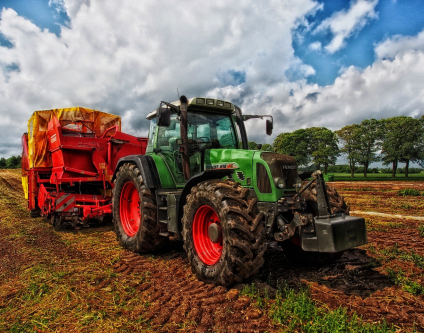
Conventional
Located in the region known as Palliser's Triangle, Medicine Hat, Alberta has a semi-arid, continental climate, with cold, dry winters and warm to hot summers. The sandy soil, grassy land cover, short growing season, and dry weather make farming challenging in this region. In this region irrigation is widely used.
Client Introduction
5th generation farmer growing Durum Wheat and Canola in 4,500 acres of farmland.
Client Objectives
Reduce chemical costs, increase yields, and increase crop quality. Utilize products so that he can successfully grow cash crops multiple times disease free. Canola under conventional methods normally requires 2, 3, or 4 year rotation.
Client Results
- Canola had on average a 15 – 20 bushel per acre increase in yield
- The canola seeds were larger and heavier.
- Canola has now been farmed 5 years in a row.
- Durum - a 20 bushel/acre increase.
- The crop was disease free.
- Canadian Wheat Board upgrade crop to grade 1.
- Higher return for wheat.
- $1 million plus profit increase
Greenhouse
The climate of North and Central Florida is humid subtropical. High temperatures during the summer average around 37C statewide with high humidity levels. Conditions are too hot for growing most vegetables in the greenhouses during the summer season.
Client Introduction
5 acre vertical farm. 2,500 plants.
Client Objectives
The client was looking for proper consultation, and due to suffering entire crop failures following recommendations by other businesses, they were simply looking for anything new in order for their business to survive.
Client Results
- Tripling production and sell produce in advance.
- Winter crops in Florida are now grown commercially in summer heat and have a niche business
- Reduced employee head count Little to no disease and pests.
- Increased client’s greenhouse production by 65%, saved 40% on fertilizer costs & helped decrease labor by 2%.
- Client now capable of year round growing with Natural Aspire product.
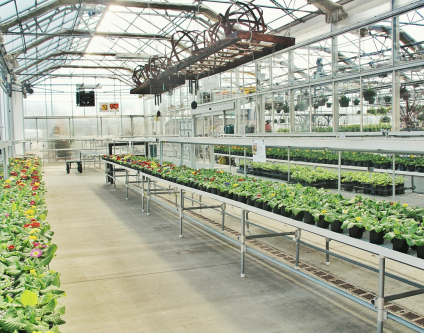
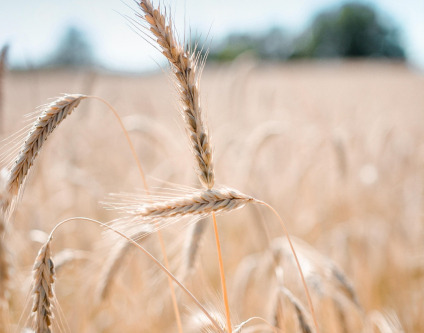
University
“The University has carved a niche for itself on the national and international scene. Among the Agricultural Universities in the country, the University of Agricultural Sciences, Dharwad - India is well known by virtue of its high academic standards, research achievements and effective transfer of technology.”
Client Introduction
Field investigation on medium deep black soils under irrigated conditions. Crop - Wheat.
Client Objectives
- Field investigation on medium deep black soils under irrigated conditions. Crop - Wheat.
- Results were measured using several standard measures of harvest:
- Plant height, number of shoots/ m (row length).
- TDM (total dry matter (kg)/m row length).
- Seed weight (g/m row length).
- 100 seed weight.
- Seed yield (kg/ha).
- Straw yield (kg/ha).
Client Results
In All cases but one, application of Natural Aspire products, along with recommended fertilizer dose RDF), and farmyard manure (FYM), provided the greatest yields, with a combination of GGOIM products and a fully organic program with the second best yield in these trials. Least yields were produced with control groups
Drought Conditions
India, like many nations around the world, continues to face significant agricultural challenges driven by a combination of environmental stressors and resource limitations. Unpredictable weather patterns, prolonged droughts, soil degradation, and pest pressures all contribute to reduced crop performance, often leading to partial or total crop failure. For millions of smallholder farmers who rely on consistent yields for their livelihoods, these challenges are not just agronomic — they’re economic and existential. Minimal yields translate directly into financial strain, food insecurity, and increased dependency on external inputs. Addressing these issues requires more than conventional farming methods; it demands resilient, sustainable solutions that work with the land — not against it.
Client Introduction
Private 7th generation farmers with over 10,000 hectares growing Jowar, Wheat, Begalgram and other crops.
Client Objectives
To increase yields and health of crop for higher returns
Client Results
- During the 2 seasons the area was plagued with drought. Natural Aspire treated crops produced a yield, whereas chemical treated products died.
- During both seasons Natural Aspire treated products produced higher and healthier, diseases free crop compared to the chemically treated counterpart.
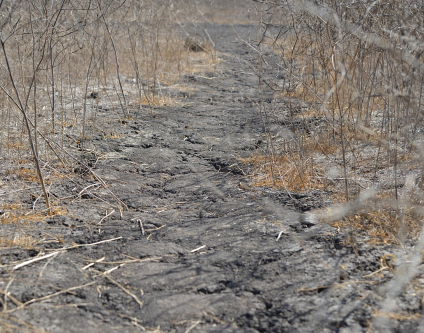
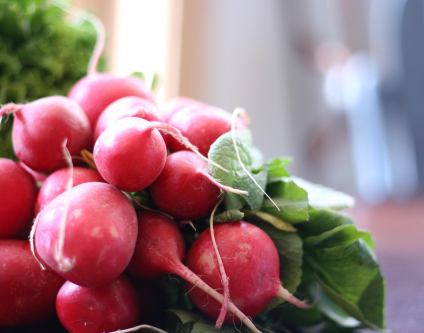
Organic
Located in the Midwest United States, Missouri clients are Amish, a group of traditionalist Christian church fellowships which form a subgroup of the Mennonite churches. The Amish are known for simple living, plain dress, and reluctance to adopt many conveniences of modern technology.
Client Introduction
Organic certified crops (hairy vetch, clovers, rye and buck wheat), beans, soybeans, corn, oats, sunflower seeds, and conventional non-GMO treated seed corn and true tillage radish seeds.
Client Objectives
Reduce input costs, increase yields, increase crop quality and deal with new drought issues in the region.
Client Results
- Kernels for the various crops (cereal, sunflower, corn and wheat), were heavier and denser.
- A 20% increase in yields with the first application of Natural Aspire products.
- Wheat kernels where the largest which living Amish farmers had ever seen or grown anywhere.
- Drought issues – this farm continued to be productive and doubled crop output from other farms in the region.
- Drought resistance provided client with business risk mitigation.
Banana Crop
A world leader in banana production facing national catastrophe in all areas of agriculture due to 800% more use of chemical and synthetic fertilizer than any country in the world. Crop failure, international export decline, food security, and farmer suicides - a wakeup call.
Client Introduction
A conglomerate growing bananas for generations based in Bangalore India.
Client Objectives
Test conventional Vs Natural Aspire product. Attempt to test replacing banned products used not allowed in the United States.
Conventional Method
- Before planting Chlorpyrifos (30 ml) + COC (30gm) is sprayed to the soil bags (Soil drenching)
- For every alternate 2nd day 19 ALL, spray is introduced to the planted soil up to 60 days
- For another alternate day Chlorpyrifos (30 ml)+Biostin (30 gm) is introduced to the plants
- In case Erwinia disease occurs, Streptocyclin (2 gm)+COC (30gm) is sprayed to control the disease
- Everyday 50 ml of Multiplex is sprayed to the plants as nutrient
Organic/Natural Method
- Foliaris- 40 liters/ha in 2 x 10 liter (4.25 gal/acre)
- PureGraze - 10 liters/ha 2 x 10 liter (1 gal/acre)
- FortiRoot - 20 liters/ha ( 2.15 gal/acre )
- Elementa- 10 liters/ha ( 1 gal/acre ), applied one week before flowering
Client Results
Greater yield using Natural Aspire products compared to conventional with over all healthier leaves and more nutritional bananas.reater yield using Natural Aspire products compared to conventional with over all healthier leaves and more nutrional bananas
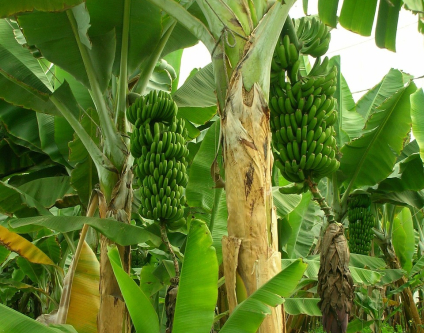
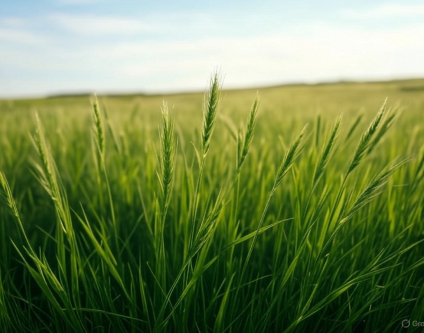
Rhodes Grass
In a collaborative effort with the Ministry of Agriculture in the MENA region, Natural Aspire products were tested on Rhodes grass — a vital forage crop known for its drought tolerance and ability to thrive in arid climates. The objective was to evaluate the effectiveness of our soil amendment solutions in improving biomass yield, root development, and nutrient uptake under extreme environmental stress. Rhodes grass plays a critical role in livestock feed across the Middle East and North Africa, and enhancing its productivity has direct implications for food security and sustainable farming. The trial results demonstrated promising improvements in both vegetative growth and soil health, reinforcing the value of regenerative practices even in regions facing water scarcity and salinity issues.
Client Introduction
A study to test the response of Natural Aspire liquid fertilizer for growth and development of two grass species. Rhodes grass (Chloris gayana L.) and local Buffel grass.
Client Objectives
To test conventional methods Vs Natural Aspire products.
Client Results
Natural Aspire products build healthy and nutrient rich pasture grasses, hay, and fodder from the root zone up. This has been proven for all types of grasses - from Rhodes grass to fescue.
Sugarcane
Sugarcane has consistently been one of the most favored crops among farmers, and for good reason. Over the years, it has earned the reputation of being a dependable and durable crop, often described as the "darling" of the agricultural community. One of the main reasons for its popularity is its remarkable ability to thrive in diverse weather conditions. Unlike many other crops that require specific climatic conditions to flourish, sugarcane is known for its resilience. It can withstand both periods of drought and excessive rainfall, making it an adaptable choice for farmers in areas where weather patterns can be unpredictable or extreme.
Another key factor that makes sugarcane an attractive crop is the financial stability it offers farmers. In countries like India, sugar mills are legally obligated to purchase sugarcane at a price determined by the government, providing farmers with fixed and reliable returns. This government-mandated price ensures that the market remains stable and that farmers can predict their earnings, even when market conditions for other crops fluctuate. In regions where agriculture can be risky and unpredictable, this fixed return offers much-needed security and reduces the financial burden on farmers who might otherwise face significant challenges due to market volatility. The crop gives farmers fix returns because the sugar mills purchase at a price fixed by the Indian government.
Client Introduction
A Private farmers with 25,000 hectares growing sugarcane for sugar production.
Client Objectives
To increase yields remove diseases / sugarcane rust, and health of crop for higher returns.
- Tested for 3 season crops,
- Tested along with chemical fertilizer for fair comparison,
- Tested under dry weather conditions with minimal rain fall.
Client Results
Unfortunately during 3 seasons of growing the region had little to no rain Natural Aspire treated crops not only produced a yield, sugarcane rust was gone, and the brix level of the sugarcane increased. During all seasons Natural Aspire treated products produced higher and healthier, diseases free crop compared to the chemically treated sugarcane.
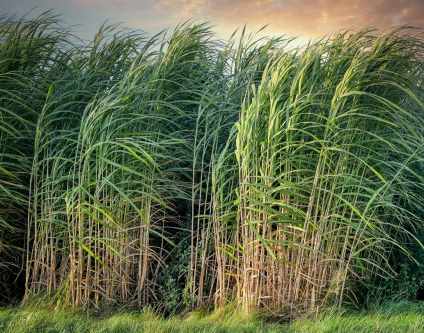
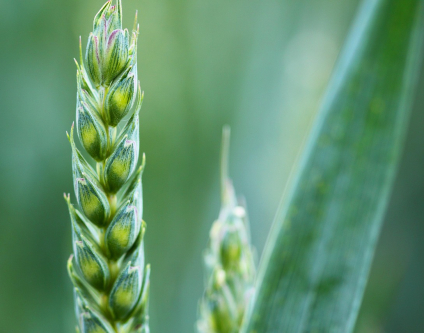
Wheat
A private client in Tanzania, Africa, is conducting an extensive study in the regions of Manyara, Arusha, and Kilimanjaro, using Natural Aspire products to combat the ongoing challenges of drought and disease. The study focuses on the potential of these natural solutions to mitigate the adverse effects of climate change, particularly the recurring droughts that have negatively impacted agriculture and water availability in these areas. In addition, the research aims to tackle the spread of diseases that have been exacerbated by the environmental conditions and the over-reliance on synthetic and chemical inputs in farming practices.
By exploring the effectiveness of Natural Aspires sustainable solutions, the study intends to demonstrate how these products can not only help restore soil health and improve crop yields but also protect local communities from the harmful effects of synthetic fertilizers and pesticides. The initiative is also designed to promote long-term ecological balance, reducing the dependency on chemical treatments that often lead to soil degradation, water contamination, and health risks for both people and wildlife.
This research is part of a broader effort to transform agricultural practices in the region, providing an eco-friendly and cost-effective alternative to chemical-based solutions, ultimately ensuring food security, environmental sustainability, and better public health outcomes for the communities in Manyara, Arusha, and Kilimanjaro.
Client Introduction
A 3rd generation farmer growing wheat in 3 regions of the country.
Client Objectives
Tackle wheat stem rust disease caused by Puccinia graminis f. sp. Tritic, reduce chemical costs, increase yields, and increase crop quality in drought arid land
Client Results
Yield increased by 15 bushel per acre.
- Combination of Natural Aspire products tackled the wheat stem rust.
- The crop was disease free.
- Able to harvest in arid growing conditions.
- Quality of wheat increased profits.
Rice
A private client in Somalia, Africa, undertaking a comprehensive study to be presented to the government, focusing on leveraging Natural Aspire products as a critical intervention to tackle widespread diseases in the region. The study emphasizes the potential of these products to address local health crises, particularly those exacerbated by poor agricultural practices and limited access to medical resources. In addition, the study explores the innovative use of Natural Aspire products to restore and rehabilitate land that has been severely impacted by years of chemical contamination from industrial waste, pesticides, and agricultural runoff. The goal is to not only combat the growing health challenges but also revitalize the land, making it fertile again for sustainable agriculture and improving the livelihoods of local communities. The initiative is a part of a broader strategy to promote long-term ecological sustainability and public health in Somalia.
Client Introduction
4th generation farmer growing rice.
Client Objectives
Our client in this case study aimed to tackle several critical challenges in agricultural production, particularly in regions affected by drought, arid conditions, and the persistent threat of pests, including rice blast. Working toward finding practical, sustainable solutions that not only address the environmental stresses on crops but also safeguard yields against diseases and pests that can devastate harvests.
Client Results
- Natural Aspire products addressed the rice blast and pests.
- The crop was disease free.
- Able to harvest in land that was arid and had previous access use of chemical fertilizers.
- Twenty percent more yield in the harvest compared to conventional methods.
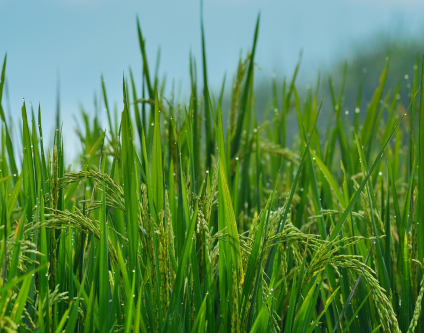
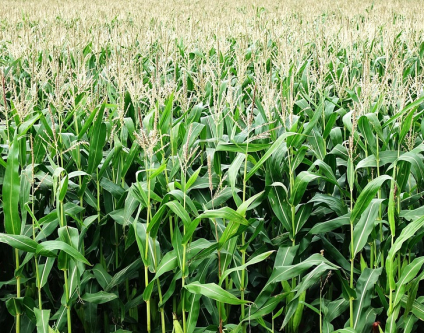
Maize
A Google search by our client led them to discover GGOIM, during a time when they were facing significant challenges related to drought conditions affecting farming in Zambia, Africa. The client, deeply concerned about the growing impact of prolonged droughts on crop production, sought out effective methods to address these issues and maintain agricultural productivity in a region where the unpredictability of weather patterns had become a major obstacle to success.
Client Introduction
2nd generation farmer growing maize.
Client Objectives
Address drought arid growing conditions and protect against diseases and pests.
Client Results
During the first season Natural Aspire was engaged with severe drought with he use of our products 75% harvest was saved.
During the second season maize was healthier, diseases free even with the drought conditions compared to any chemically treated counterpart.

